Which natural stones are suitable for using in a wet area? And what is the best sealant recommended to protect natural stone tiles?
When designing quality and durable projects, natural stone is a great choice for many designers. However, not all natural stones are right for the job, especially when choosing to use these in wet areas like bathrooms, kitchens and pool surrounds. In this blog we want to help support you in making the right choice. We also recommend the best sealant to use with the product to ensure you use each tile to its full potential.
Marble
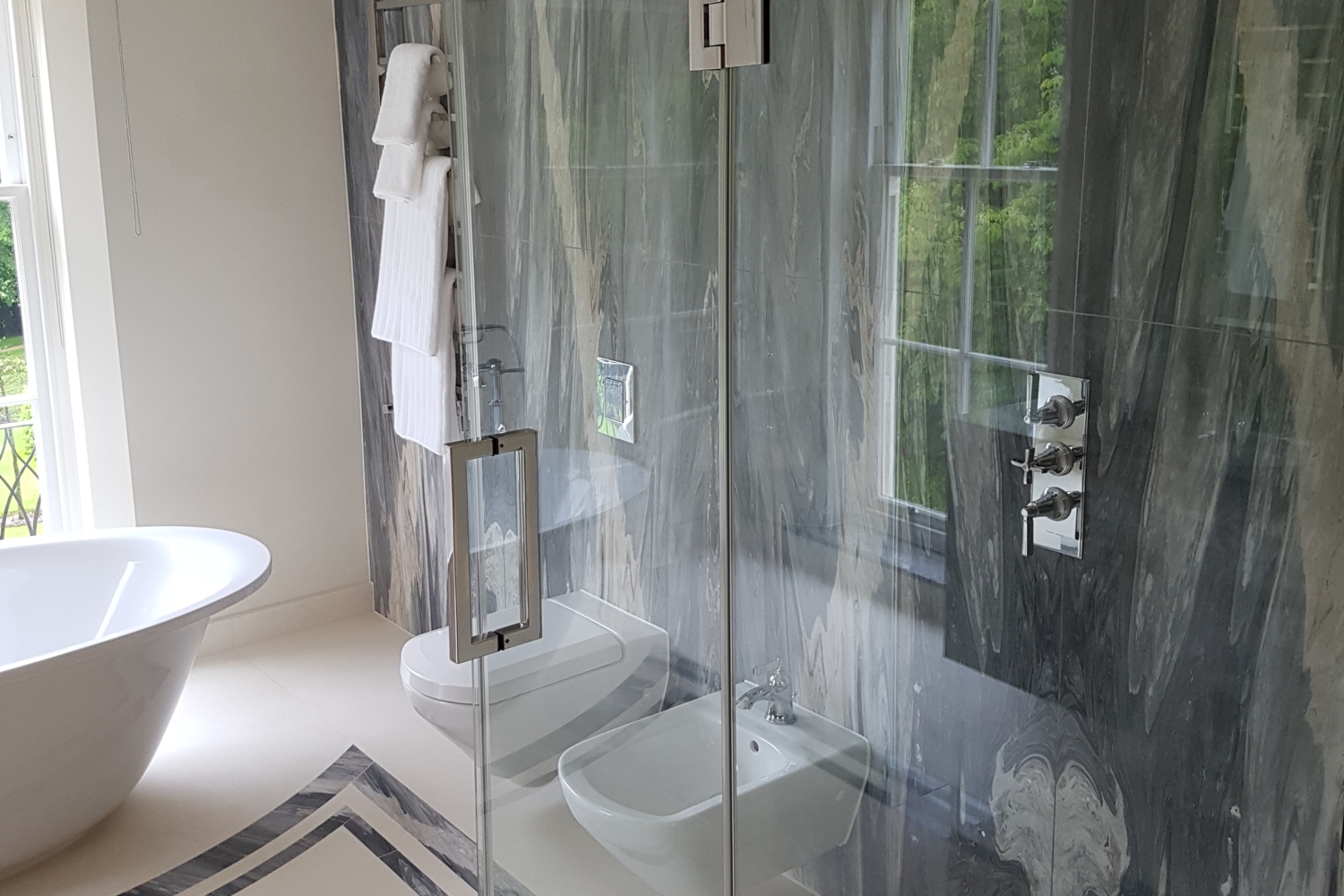
Can Marble tiles be used in a wet area?
Yes, marble can generally be used in wet areas if sealed correctly, however some marbles react to pool chemicals, chlorine.
What are the best ways to ensure marble is the right product for the purpose?
Due to marble being able to react with pool chemicals, causing etching or discoloration, it would be better to use another product. In other wet areas it can be sealed and will still be fit for purpose. If using marble on the floor, make sure it has the sufficient slip resistance. Marble surfaces can be sandblasted or given a honed finish, until it has the correct slip resistance.
Travertine

Can Travertine tiles be used in a wet area?
Yes, it is excellent for wet areas. Travertine’s surface doesn’t show water marks and it’s small holes provide great slip resistance, making it a great practical and safe choice for wet areas.
Limestone

Can Limestone be used in a wet area?
Yes, however similar to marble, some limestones react to pool chemicals and chlorine. The surface of limestone should also be sandblasted or course honed finish to ensure the correct slip resistance, should it be used on the floor.
Slate
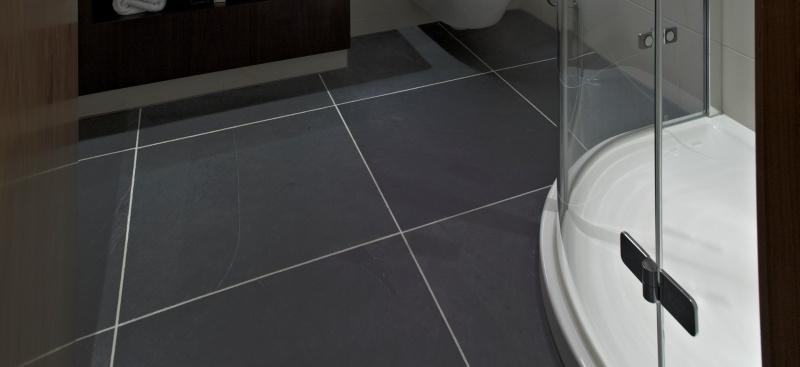
Can Slate be used in a wet area?
Slate is generally good for wet areas however some Indian slates aren’t suitable due to them being a mudstone which softens with water exposure. Make sure you ask the supplier first before selecting any particular slate for a wet area/outdoor area.
Quartzite
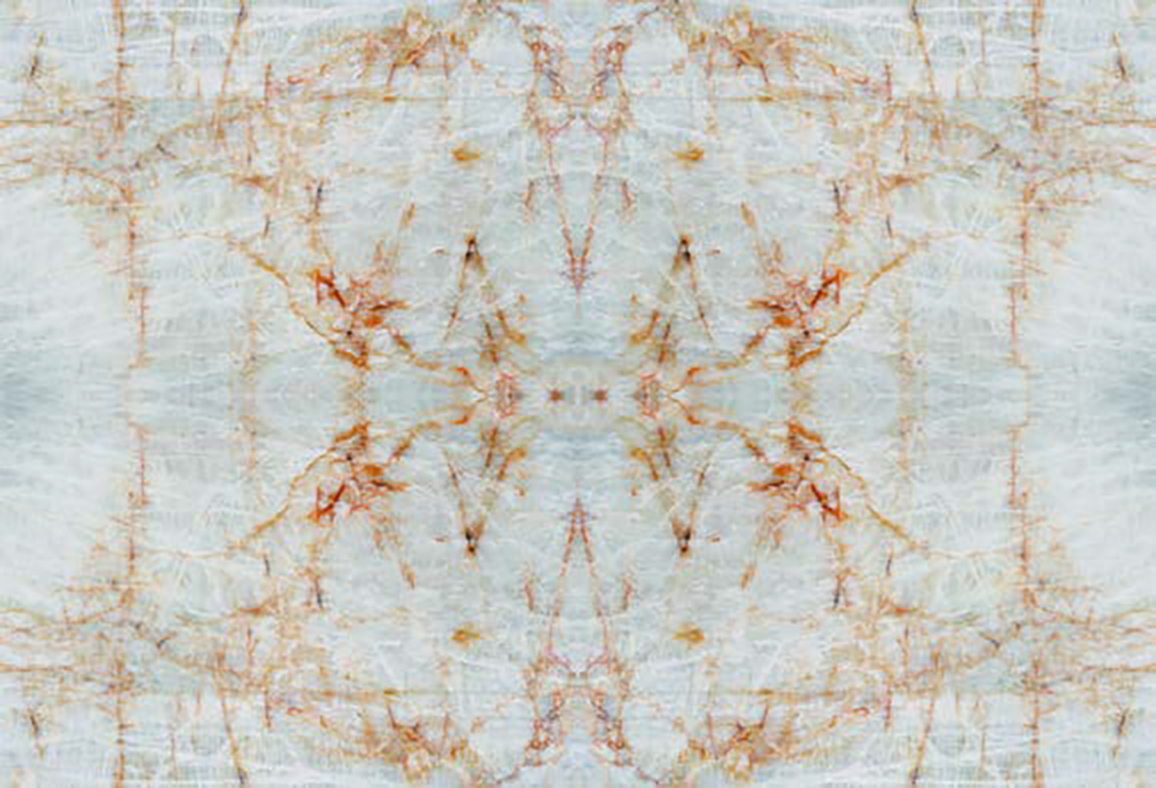
Can Quartzite be used in a wet area?
Yes, quartzite is a good option for wet areas. It is both strong and durable. You will need to ensure the finish is best for slip resistance. We would recommend a riven finish.
Granite
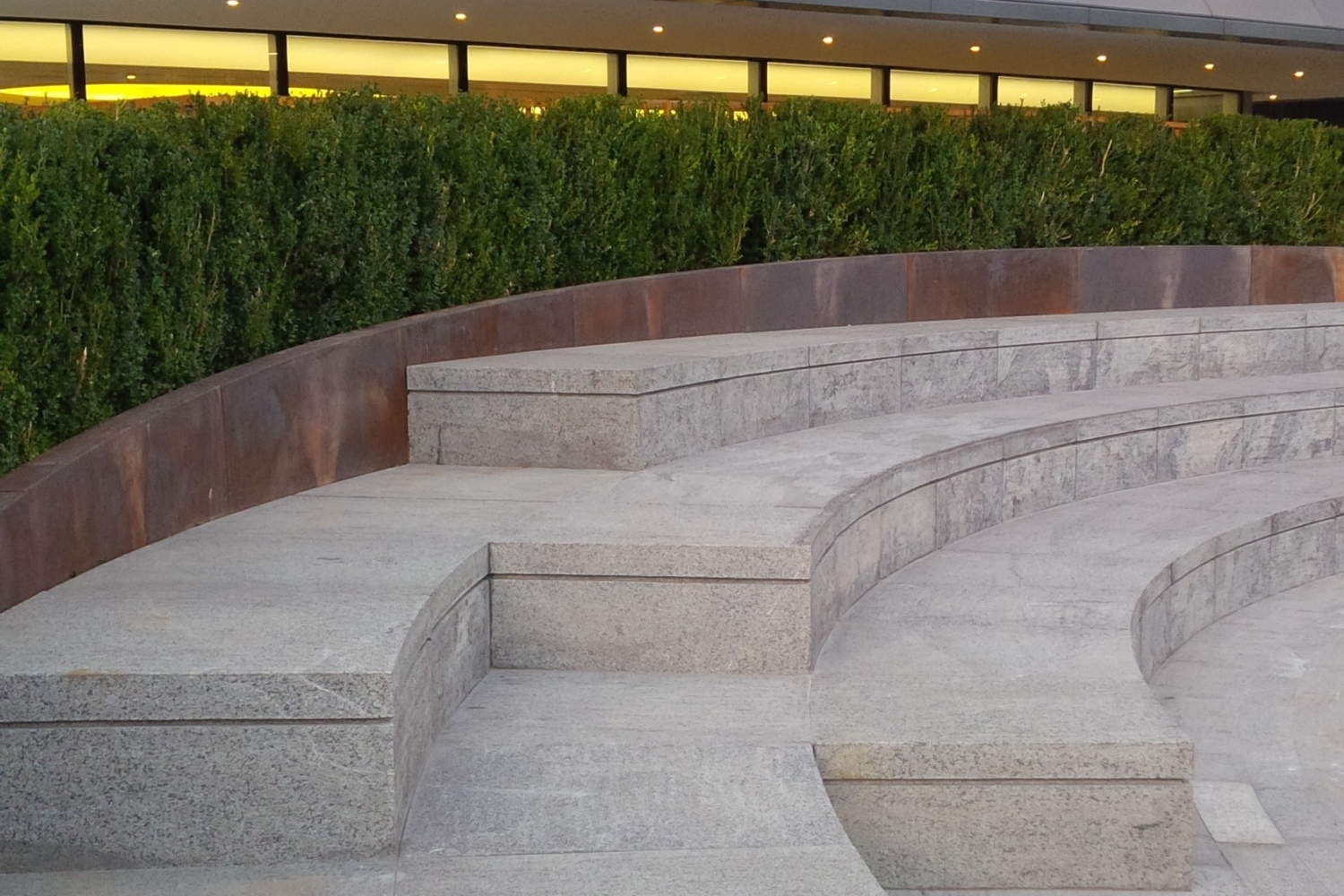
Can Granite be used in a wet area?
Yes it is good in wet areas. Similar to quartzite with a riven or brushed finish for slip resistance this can be used inside and outside for a lasting beautiful natural stone.
Onyx
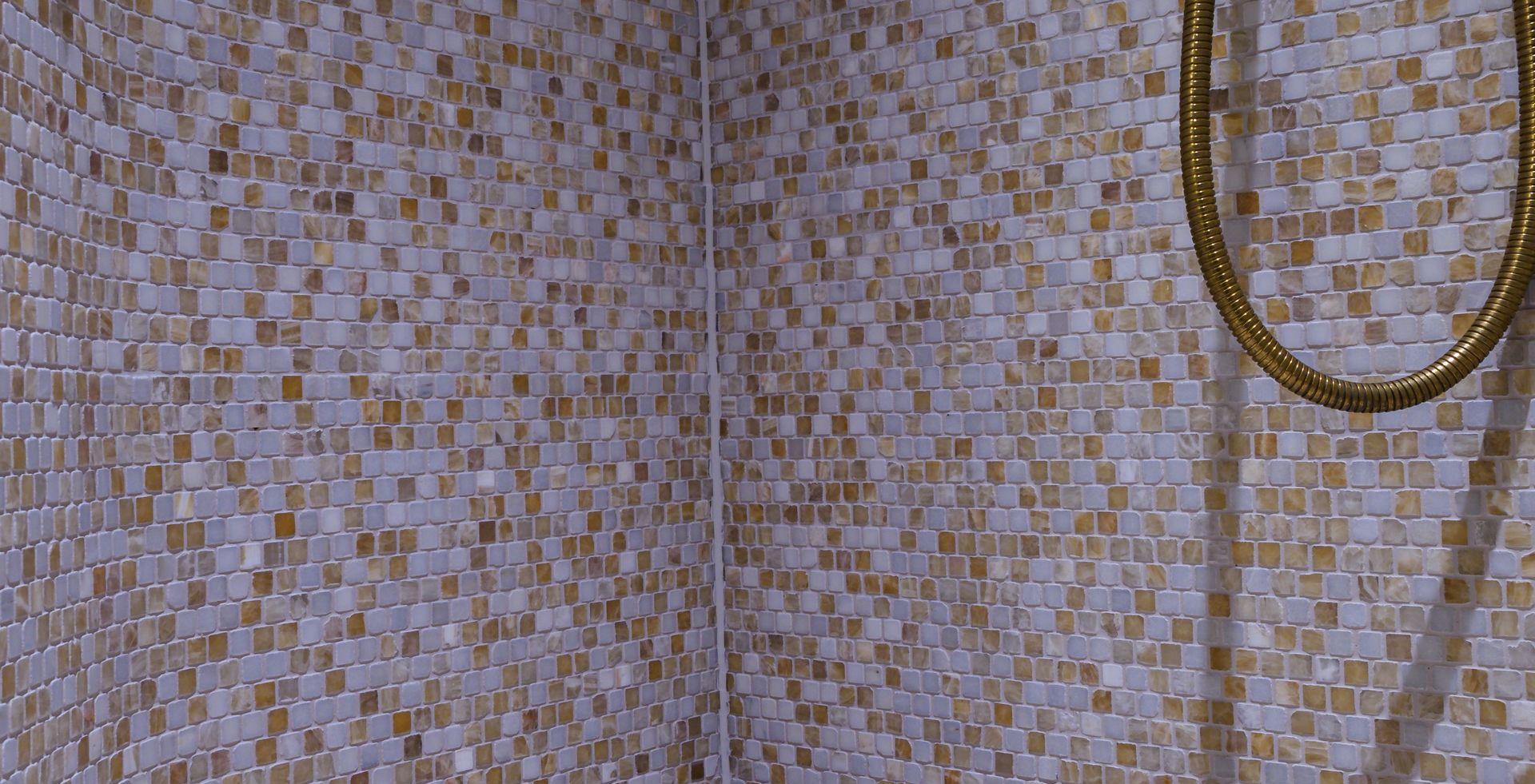
Can Onyx be used in a wet area?
Yes, Onyx is fine in a wet area in mosaic format. It is often used this way in a wet area. On the other hand, in large slabs, it is too expensive already without sandblasting or coursely honing and this will also compromise the aesthetic beauty of the tile. However if you were using on the wall, it could certainly be an option.
And which sealant is the best option for longevity with natural stone in a wet area?
For the best sealant we recommend using Stainproof for all these different natural stone options. There is 2 options Stainproof and Stainproof Enhance Plus.
Stainproof Stainproof Enhance-Plus
Why this over against others sealants?
From many years experience, at Keystone we would recommend Stainproof as the best and most successful for a wet area, it doesn’t affect the slip resistance of the tile or the finish and has a 5 or 15 year warranty on the stone.
This product allows the natural stone to breathe, which allows any moisture to escape the tile.
STAIN-PROOF Penetrating Sealer Technology
STAIN-PROOF impregnating sealer technology is different.
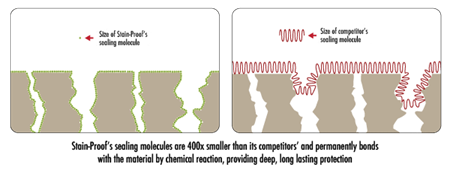
The special penetrating sealer
molecules are hundreds of times smaller than competitor stone
sealers and penetrate much deeper into the
pore structure, even dense natural stones like granite. Inside the pores our
special sealing molecules bond permanently by chemical
reactions , creating a substantial, deep oil and water-repellent
barrier.
The deeper STAIN-PROOF barrier, not only provides great surface stain protection, but also protection against more serious common types of damage cause by water ingress (penetration), including efflorescence, salt spalling, freeze-thaw spalling, and picture framing.
STAIN-PROOF impregnators provide superior protection.
- Super oil and water repellence = superior stain protection.
- Deeper penetration and permanent bonding = permanent PLUS premium protection from efflorescence, salt spalling, freeze-thaw spalling and picture framing.
- For indoor and outdoor use on residential and commercial projects on floors, patios, entertaining areas, facades, cladding, pool surrounds and walls.
- The penetrating sealers even stand up to commercial cleaning techniques e.g. high pressure hosing and maintain the slip resistance of the surface.
- Written 5, 15, 25 and 30 year performance warranties are available when our impregnating sealers are applied by a STAIN-PROOF Accredited Applicator.
Which one should I choose?
|
Stainproof- Enhance plus |
Stainproof- Premium |
|
|
In summary,
4 tips to make sure you make the best choice around natural stone in a wet area:
1. Slip Resistance - Make sure you have the correct slip-resistance, especially in areas where it is likely to get wet.
2. Sealants – For longevity of your flooring a sealant is crucial, this will avoid stains, etching and chemical reactions.
3. Sourcing – Make sure you ask the questions when sourcing a tile for a wet area and make sure it is suitable.
4. Maintenance – To make sure it keeps nice for years to come, regular maintenance will ensure the natural beauty and functionality of the tile.
If you need any more help or information, please reach out to our team.
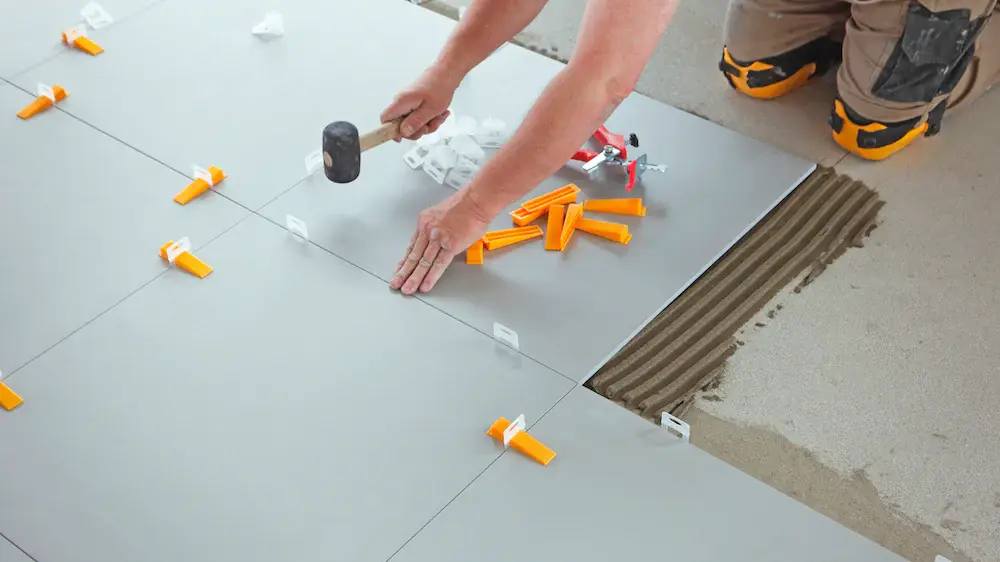
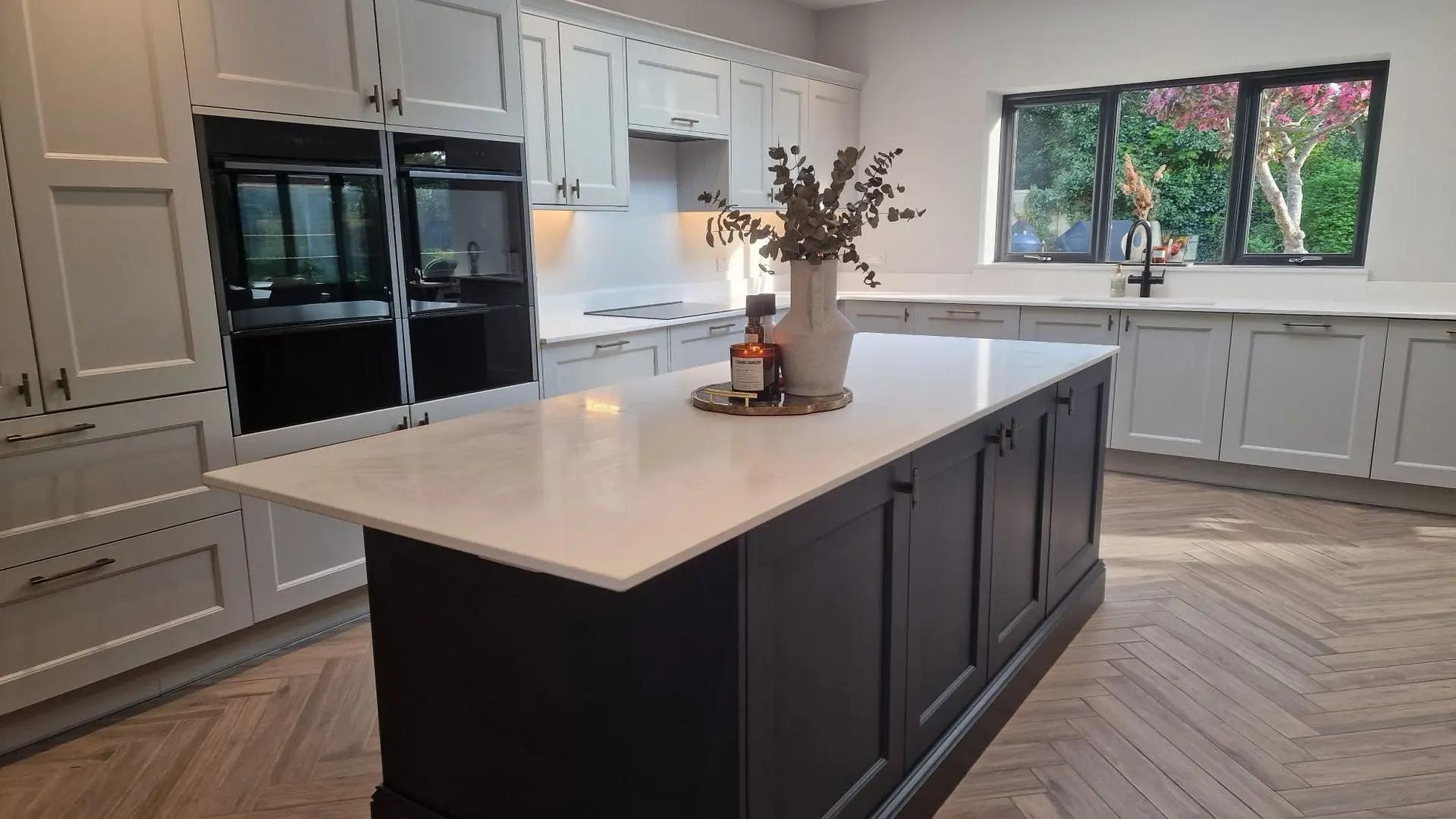
Which natural stones are suitable for using in a wet area?